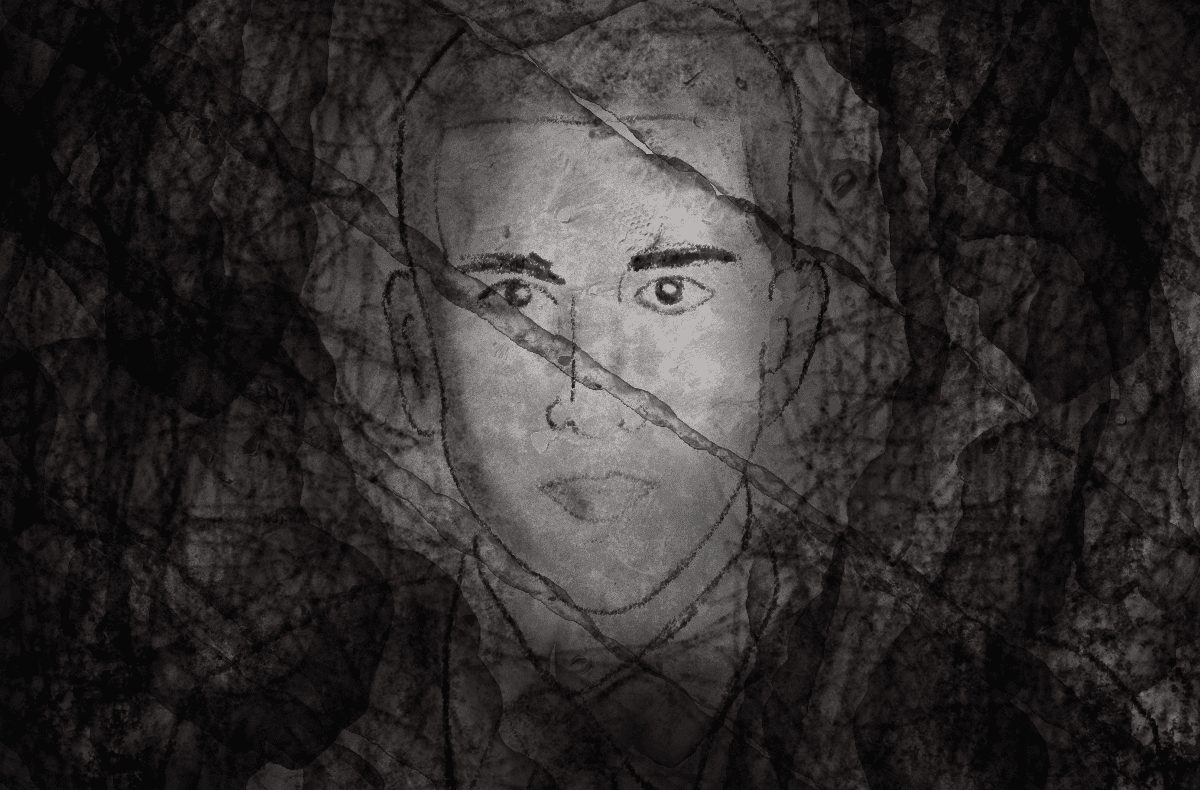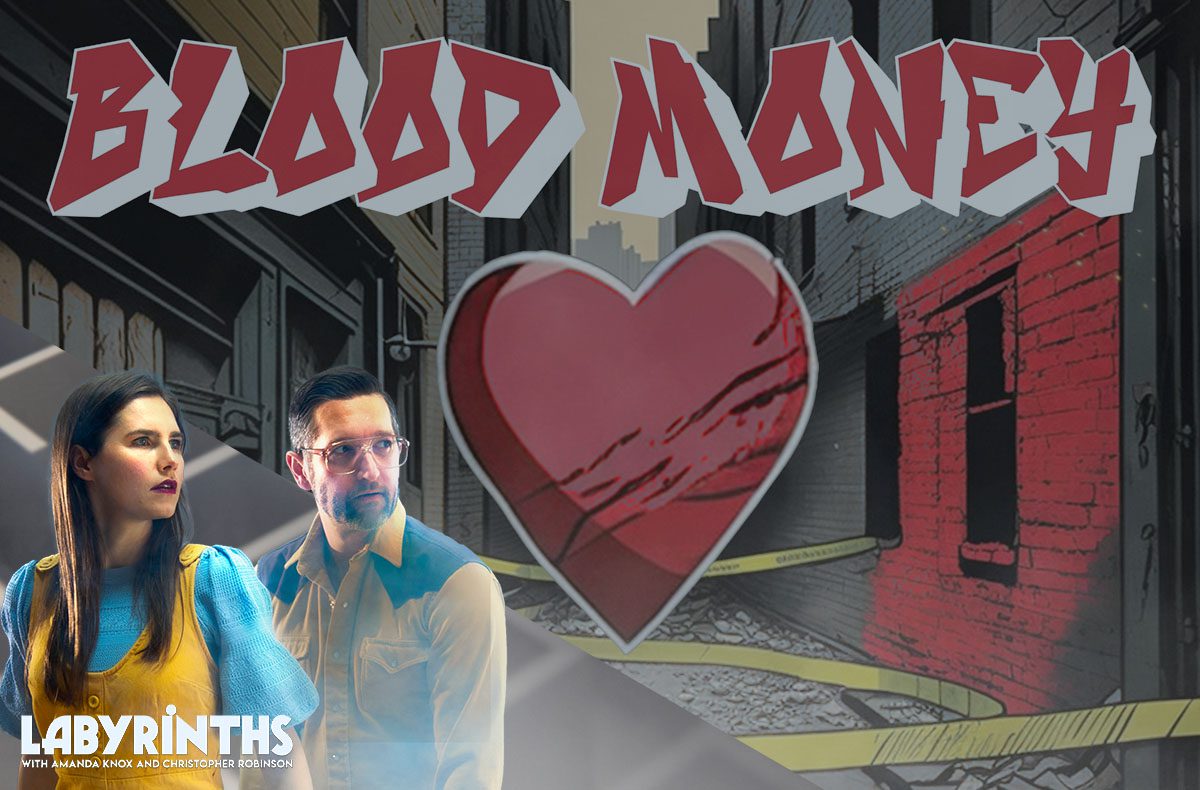
What is evil? It sounds like a simple question, and one many people think they know the answer to. Child sex trafficking. Lynching. Genocide. Ted Bundy. Hitler. If anything is evil, it’s actions like these and people like that.
As I watched the early speculations play out about the Idaho murders last November, a common theme emerged: the slaying of the four college students in their sleep was an act of evil, and whoever perpetrated it was likely a psychopath. I saw it on Reddit boards and podcasts, in the tabloids, on daytime TV, and in mainstream news outlets. And when the identity of the suspect and further evidence was released, these judgments solidified. The suspect had studied criminology, even taking classes with an expert on serial killers. He wore a black mask and disconnected his phone during the murders. He thoroughly cleaned his car, and was seen wearing surgical gloves and depositing trash in his neighbor’s bin. The verdict was in even before he entered court with a “sociopathic stare”: this guy was a Ted Bundy in the making. The more callow corners of the internet were even asking, who’s hotter?
Is the Idaho killer a psychopath? He may be, but whether he is and what conclusions to draw from that isn’t so straightforward. Psychopathy (also called sociopathy) is a term bandied about in criminal contexts far more than psychological ones. It is not even listed in The Diagnostic and Statistical Manual of Mental Orders (DSM). As Sam Harris notes in The Moral Landscape, the two diagnoses that “seek to address the behavioral correlates of psychopathy—antisocial personality disorder (APSD) and conduct disorder—do not capture its interpersonal and emotional components at all.” Psychopaths are egotistical, indifferent to the suffering of others, deceptive, manipulative, disinhibited, and they lack empathy and remorse.
As Harris notes, these are interpersonal and emotional traits. That’s why it’s irresponsible to diagnose someone as a psychopath based on a glare—I know what that feels like. But even if we have better reasons to think someone is a psychopath—like a high score on the Psychopathy Checklist-Revised (PCL-R), created by forensic psychologist Robert Hare, not all psychopaths are killers. Most aren’t. In his book, Without Conscience: The Disturbing World of Psychopaths Among Us, Hare estimates that, while there are perhaps 100 serial killers at any given moment in the U.S., there are close to three million psychopaths, most of them living out their lives without perpetrating criminal violence. He does, however, estimate that they account for twenty percent of prison inmates, male and female.
For what it’s worth, this was not my experience in prison.
There were close to 90 inmates in Capanne prison during my stay, and if Hare’s figures held there, that would mean 18 of them were psychopaths. Now, I’m no psychologist—and my expertise then consisted of reading Jon Ronson’s excellent book The Psychopath Test, which a friend sent me during my incarceration—but I’m a decent judge of character, and I spent a lot of time with those women. I played cards with them, ate meals with them, watched soap operas with them, day in, day out, for four years. Many of them suffered from various forms of mental illness. Most came from lives of poverty and trauma. But to my eye, not one of them was a psychopath. Their crimes, even the violent ones, were impulsive acts of desperation.
I’m not speculating that the Idaho killer’s crime was a response to trauma, but merely that, whether psychopathy is as common as Hare’s research suggests, or as uncommon as my prison experience suggests, it doesn’t tell us much about evil. In fact, it likely undercuts notions of evil.
Consider the Texas tower sniper, who, in 1966, stabbed his wife and mother, then climbed a clocktower and fired at random people for 96 minutes. While I’m sure it was no solace to the 16 people he killed that day, in his suicide note, he seems a victim of his own neurophysiology. He wrote:
“I do not really understand myself these days. I am supposed to be an average reasonable and intelligent young man. However, lately (I cannot recall when it started) I have been a victim of many unusual and irrational thoughts.”
He noted that he dearly loved his wife and mother, but that he was overwhelmed by violent impulses and decided to kill them. This all would be a curiosity if not for the fact that he also mentioned suffering from tremendous headaches, and requested that after his death “an autopsy would be performed on me to see if there is any visible physical disorder.”
An autopsy was performed, and a pecan-sized brain tumor was found in his hypothalamus, pressing on his amygdala, the region of the brain that helps regulate emotions such as fear, anxiety, and aggression. While a commision of neurosurgeons and psychologists formed by the governor failed to find a clear link between the tumor and Wittman’s actions (with their 1966 knowledge of neurophysiology and psychology), it remains plausible that the tumor was a primary cause. I find that, on learning of Wittman’s tumor, most people reclassify their judgment towards him, at least partially mitigating his moral responsibility for his actions. How would you feel if it turned out that the Idaho killer had a similar tumor?
For Sam Harris, this case is a springboard into a broader understanding of how our lack of free will relates to moral responsibility. In his series of lectures on free will in the Waking Up app, he says the following:
“A brain tumor is just a special case of our having insight into the fact that physical events give rise to thoughts and actions. If we fully understood the neurophysiology of any murderer’s brain, it would seem just as exculpatory as finding a tumor in it. If we could see how the wrong genes were being relentlessly transcribed, and how this person’s experiences in life had sculpted the microstructure of his brain in just such a way to produce states of mind which were guaranteed to make him violent, if we could see this causality clearly, the basis for placing blame on him in any deep sense would disappear.”
So is no killer, psychopath or not, truly evil? Does evil even exist? Surely the Nazis? But even there, we must consider moral luck, an idea first developed by philosopher Thomas Nagel. “Someone who was an officer in a concentration camp might have led a quiet and harmless life if the Nazis had never come to power in Germany. And someone who led a quiet and harmless life in Argentina might have become an officer in a concentration camp if he had not left Germany for business reasons in 1930.”
Our available decisions in life are a matter of luck, a result of choices made by others that shape the world we find ourselves in. And even those predisposed to psychopathy have minds shaped by genes and environmental influences, also causes they didn’t choose.
If the Idaho killer is a psychopath, then like Charles Wittman and Ted Bundy, he’s extremely unlucky to have been born with that brain and to find himself in a world where methodically slaying four unsuspecting college students was a viable choice for him. Would you want his brain? I sure wouldn’t.
It’s hard to have compassion for someone who commits such horrific violence, senselessly rending apart communities and families. Ethan Chapin, Madison Mogen, Xana Kernodle, and Kaylee Goncalves all deserved to live and it’s an absolute tragedy that their lives were stolen, especially in such a brutal way. It’s natural to want to explain this tragedy with words like psychopathy and evil, but I worry these are easy and reductive responses. We can and should honor the victims’ memory, grieve their loss, and support their families. We can also try to see that there are no winners in a situation like this. The killer, too, is extremely unlucky. I can only imagine how awful his life has been if he is capable of those actions, how devoid of true human connection, empathy, and love, moving through a world of people as if they were mere objects to be manipulated or destroyed. And I can only imagine the suffering his family will endure—they didn’t choose to have a killer for a son, and like the families of his victims, their lives, too, will be forever scarred by what their son did.
None of this means there shouldn’t be consequences for those who commit such acts. But it does mean we should have compassion, even as we mete out consequences. Compassion isn’t compassion if it’s reserved for the well-behaved, the sane, the kind, the undeserving of violence. We must also extend it to the violent and the disturbed, to the “evil,” if such a thing exists. “Evil” is an excuse to ignore the causes of human dysfunction. It’s a wall we build to separate ourselves from those who commit the worst actions we can imagine. And ironically, it’s how we grant ourselves permission to indulge in psychopathy ourselves: to be indifferent to the suffering we inflict on someone as a consequence of their “evil” actions.
In a way, our punitive criminal justice system is built on this principle. Let’s not forget that it was, at one time, routine to dismember criminals in front of cheering throngs. What could be more psychopathic? And of course, we still execute people to this day, in ways that are perhaps more muted, but just as ugly. Even the casual indifference with which we sentence people to decades or life in prison—sometimes even rejoicing at this horror—shows that there’s a bit of psychopathy in all of us. It takes humility to see that, and to attempt to overcome it. But it’s a worthwhile endeavor. On the other side of the wall of “evil” is understanding. Compassion is the ladder.


